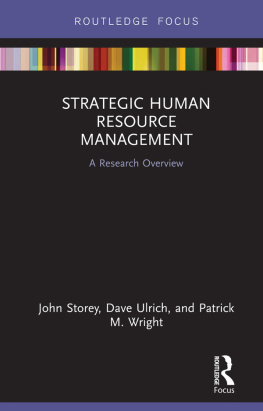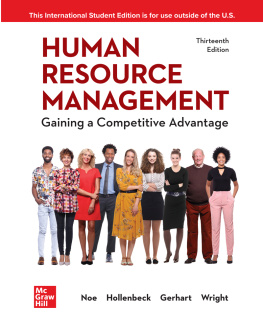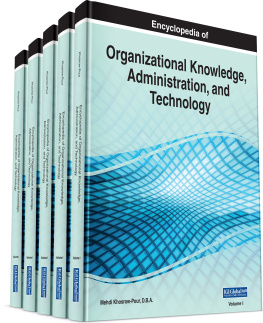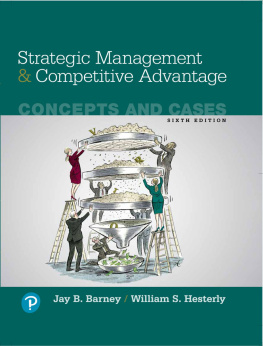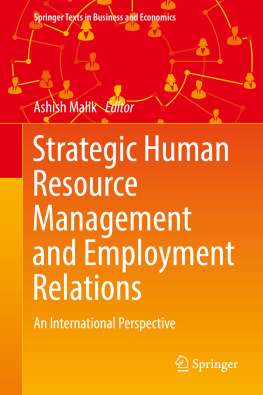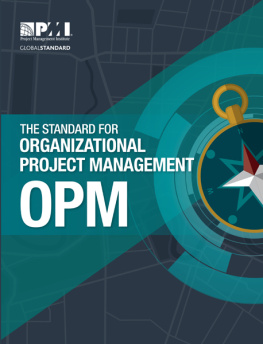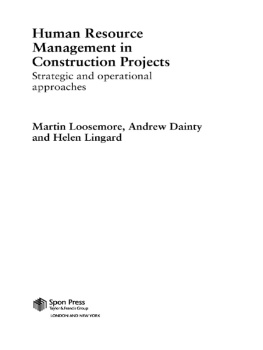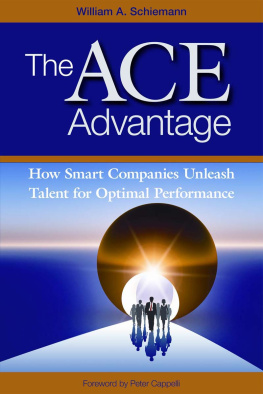
Strategic Human Resource Management
The field of Strategic Human Resource Management (SHRM) has burgeoned over the past thirty years. Over this time there has been a shift towards a strategic conception which posited workers as assets rather than costs. These human resources were reconceptualised as a key source of competitive advantage. As such, these assets were to be treated seriously: selected with care, trained and developed, and above all, induced to offer commitment. The concept of human capital came to the fore, and in the decades following these developments, research output has been voluminous.
Strategic Human Resource Management: A Research Overview , authored by global research leaders, provides an expert summary of this crucial element of organizational performance. This new shortform book develops the argument that one of the crucial elements of organizational performance is the way work is organized in skill and talent packages both within an organizations boundary and across global competency clusters. Secondly, it focuses on current and emergent challenges. The package of HR approaches has changed over time and patterns can be observed. This new volume pays special regard to the HR implications arising from radically altering contexts economic, social, and technological.
This concise volume covers crucial themes of lasting interest, and as such is essential reading for business scholars and professionals.
John Storey is Professor of Human Resource Management at The Open University, UK. He has served as Principal Investigator on numerous research council projects concerning strategy, innovation, organizations, and human resource management.
Dave Ulrich is Professor of Business at the Ross School of Business, University of Michigan, USA. He has been ranked by Business Week as the Number 1 management educator and listed in Forbes as one of the top five business coaches.
Patrick M. Wright is faculty director of the Center for Executive Succession in the Darla Moore School of Business at the University of South Carolina, USA. From 2011 to 2017, he was named by HR magazine as one of the 20 Most Influential Thought Leaders in HR.

State of the Art in Business Research
Edited by Professor Geoffrey Wood
Recent advances in theory, methods, and applied knowledge (alongside structural changes in the global economic ecosystem) have presented researchers with challenges in seeking to stay abreast of their fields and navigate new scholarly terrains.
State of the Art in Business Research presents shortform books which provide an expert map to guide readers through new and rapidly evolving areas of research. Each title will provide an overview of the area, a guide to the key literature and theories, and time-saving summaries of how theory interacts with practice.
As a collection, these books provide a library of theoretical and conceptual insights, and exposure to novel research tools and applied knowledge, that aid and facilitate in defining the state of the art, as a foundation stone for a new generation of research.
Business Models
A Research Overview
Christian Nielsen, Morten Lund, Marco Montemari, Francesco Paolone, Maurizio Massaro and John Dumay
Mergers and Acquisitions
A Research Overview
David R. King, Florian Bauer and Svante Schriber
Strategic Human Resource Management
A Research Overview
John Storey, Dave Ulrich, and Patrick M. Wright
For more information about this series, please visit: www.routledge.com/State-of-the-Art-in-Business-Research/book-series/START
Strategic Human Resource
Management
A Research Overview
John Storey, Dave Ulrich, and
Patrick M. Wright

First published 2019
by Routledge
2 Park Square, Milton Park, Abingdon, Oxon OX14 4RN
and by Routledge
52 Vanderbilt Avenue, New York, NY 10017
Routledge is an imprint of the Taylor & Francis Group, an informa business
2019 John Storey, Dave Ulrich, and Patrick M. Wright
The right of John Storey, Dave Ulrich, and Patrick M. Wright to be identified as authors of this work has been asserted by them in accordance with sections 77 and 78 of the Copyright, Designs and Patents Act 1988.
All rights reserved. No part of this book may be reprinted or reproduced or utilised in any form or by any electronic, mechanical, or other means, now known or hereafter invented, including photocopying and recording, or in any information storage or retrieval system, without permission in writing from the publishers.
Trademark notice : Product or corporate names may be trademarks or registered trademarks, and are used only for identification and explanation without intent to infringe.
British Library Cataloguing-in-Publication Data
A catalogue record for this book is available from the British Library
Library of Congress Cataloging-in-Publication Data
Names: Storey, John, 1947- author. | Ulrich, David, 1953- author. | Wright, Patrick M., author.
Title: Strategic human resource management : a research overview / John Storey, Dave Ulrich and Patrick M. Wright.
Description: First Edition. | New York : Routledge, 2019. | Series: State of the art in business research | Includes bibliographical references and index.
Identifiers: LCCN 2018057137| ISBN 9781138591998 (hardback) | ISBN 9780429490217 (ebook)
Subjects: LCSH: Personnel management. | Strategic planning.
Classification: LCC HF5549 .S8786 2019 | DDC 658.3/01dc23
LC record available at https://lccn.loc.gov/2018057137
ISBN: 978-1-138-59199-8 (hbk)
ISBN: 978-0-429-49021-7 (ebk)
Typeset in Times New Roman
by Swales & Willis Ltd, Exeter, Devon, UK
Human Resource Management (HRM) has become the predominant term to describe the theory and practices relating to the way people are managed at work. In previous times (and indeed even now in some places) other terms have been used which, in varying degrees, broadly correspond. These other terms include personnel management, personnel administration, people management, employee relations, human capital management, industrial relations and employment management. Each of these terms reflects the diverse antecedents of HRM and they also reveal aspects of the different ideologies associated with these approaches. For example, some early forms of personnel management had a welfare parentage, others carried traces of a social-psychological human relations movement history (Mayo 1949). Each of these traditions reflected a primary focus on individuals and small groups. Conversely, the terms industrial relations and employment relations reflect the collectivist (pluralist) approach to management-worker relations which, at times and in places, were dominant throughout much of the 20th century in Europe, North America and beyond (Clegg 1979; Dunlop 1958; Flanders 1964; 1970; Fox 1974). This tradition was developed in North America and beyond with ideas about mutual gains and union-management partnerships (Kochan and Osterman 1994). The disciplinary roots of the field include aspects of labour economics, industrial sociology, psychology and law.
The term Strategic Human Resource Management (SHRM) is used to emphasise the strategic character of a particular approach to talent and organization management though some commentators would argue that HRM itself is inherently strategic in nature. Hence, the terms HRM and SHRM are often used interchangeably.
Next page
